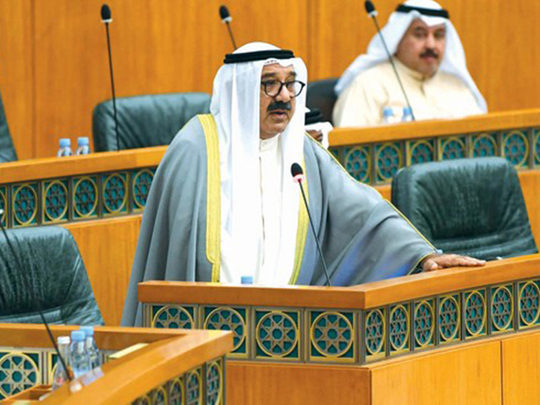
Manama: Kuwait’s parliament has voted to allow stateless people (Bidoon) to join the army.
The breakthrough decision was adopted by 52 of the 58 members present at the second debate of the motion for a new army law. Five members opposed it and one abstained from voting.
The parliament is made up of 50 elected members and 15 appointed ministers.
The motion cleared the first of the two debates on February 13.
One lawmaker suggested that the army stipulate priorities in recruiting people for the army.
Kuwaitis should come first, followed by the sons of Kuwaiti mothers and foreign fathers, Bidoons and those who have advanced expertise and qualifications, MP Askar Al Enezi, the head of the interior and defence committee, said.
However, some lawmakers rejected the idea of including a list of recruitment priorities in the law, saying that it could mean barring many others down the list from joining if there were no vacancies left.
Lawmaker Fihad Al Enezi said that more than 25,000 bedoons had signed up to join the army in one week.
The motion was referred to the government.
“The support of the parliament, especially the interior and defence committee, has been tremendous and I thank all members for their efforts which indicated a laudable spirit of national cohesion that brings all people together,” Shaikh Nasser Al Sabah, the defence minister, said following the vote.
Kuwait has been looking into ways to address the issue of the approximately 105,000 stateless residents who have been seeking Kuwaiti citizenship as well as civil and social rights that they do not have given their “illegal” status.
However, the government said that only 34,000 qualified for consideration while the rest are Arabs or descendants of Arab people who moved to Kuwait following the discovery of oil and deliberately disposed their original passports to seek citizenship in the oil-rich country.
Kuwait formerly referred to the stateless as “bidoon”, but now classifies them as “illegal residents”.
In 2010, Kuwait set up the Central Apparatus for Illegal Residents in a new effort to find a solution to the issue and determine those who deserved the citizenship, - including residents whose stateless parents failed to register for citizenship following Kuwait’s independence in 1961.
The agency provides a package of incentives to illegal residents who adjust their legal status and declare their original nationalities.
Benefits include granting all family members a renewable five-year residency permit with no fees incurred, free-of-charge education and health services, supply cards, and priority recruitment after Kuwaiti nationals in public agencies and bodies and smoother procedures for driving licences.
Kuwaiti authorities said that 7,039 people living illegally in Kuwait adjusted their legal status between 2011 and August 2015 by declaring their original nationalities.
According to the Central Apparatus for Illegal Residents’ Affairs, 4,973 announced the Saudi nationality, 778 the Iraqi nationality, 726 the Syrian nationality, 79 the Iranian nationality, 47 the Jordanian nationality and 436 other nationalities.












